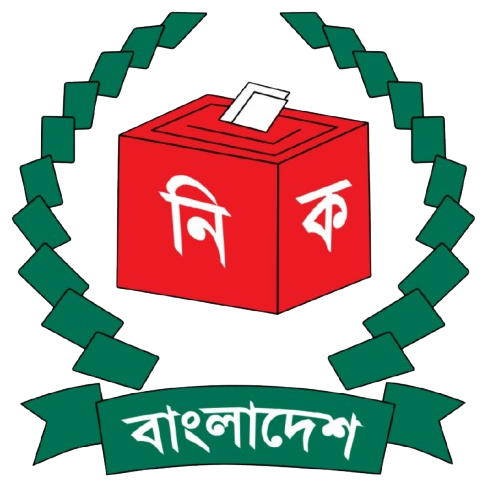Expatriates Who Want to Vote Must Submit Four Mandatory Forms

Expatriates Who Want to Vote Must Submit Four Mandatory Forms. The Election Commission of Bangladesh has launched a major initiative to bring Bangladeshi expatriates into the country’s electoral system by allowing them to obtain their National Identity Cards (NIDs) from abroad. This initiative is a significant step toward empowering the global Bangladeshi community and ensuring their participation in the democratic process.
To streamline the voter registration process for Bangladeshis living abroad, the Election Commission (EC) has made it mandatory to submit four essential documents. This article outlines the process, required documents, and additional guidelines that expatriates must follow to become registered voters of Bangladesh.
Why This Initiative Matters
In recent years, there has been increasing demand from expatriates for inclusion in the voting process of Bangladesh. The move to issue NID cards to Bangladeshis overseas not only enables their participation in elections but also allows them to access various government services remotely.
This initiative aims to:
- Ensure fair representation of expatriates in national matters.
- Build a comprehensive database of Bangladeshi citizens living abroad.
- Enhance the accuracy of the national voter list.
- Facilitate easier access to public services, including passport renewals and banking.
Four Mandatory Submissions for Expatriate Voter Registration
To register as a voter from abroad, all applicants must submit the following four compulsory documents at their nearest Bangladesh Registration Center or as per instructions from the Election Commission:
1. Online Filled Application Form (Form-2A)
This form is available on the official Bangladesh Election Commission website and must be completed digitally. It includes basic details such as name, parents’ names, address in Bangladesh, and expatriate details.
2. Valid Bangladeshi Passport
A copy of a valid passport is mandatory as it serves as a primary identification document. The passport must be current and include all pages that show personal information and residency visas.
3. Online Birth Registration Certificate
Expatriates must provide a digitally registered birth certificate. Manual or handwritten certificates are not accepted. If your birth certificate is not digitized, you must update it through the appropriate municipal authority or union council in Bangladesh.
4. Recent Passport-Size Color Photograph
A passport-size color photograph must be submitted. The image must be recent, clear, and follow the standard specifications set by the Election Commission.
Additional Information That May Be Required
While the above four documents are mandatory, the Election Commission of Bangladesh may require expatriates to provide additional supporting documents, depending on their individual circumstances. Below is a list of optional but relevant documents:
- Special Information Form: Required for citizens of 56 Upazilas/Thanas in the Chittagong region.
- Educational Certificates: SSC or equivalent, JSC, or PSC certificates.
- NID of Parents: Used to verify family linkage.
- Death Certificate: If a parent is deceased.
- Driving License / TIN: For individuals with professional or business involvement.
- Dual Citizenship Certificate: If the applicant holds dual nationality (based on country-specific regulations).
- Nikahnama (Marriage Certificate): To verify marital status.
- NID of Spouse: If married, both husband and wife’s NIDs may be required.
- Citizenship Certificate: Issued by local councilors, chairmen, or mayors.
- Utility Bill Copy: Electricity, water, or gas bill showing the permanent address in Bangladesh.
- Rental Agreement and No Objection Letter: If the expatriate is a tenant in Bangladesh, documents must be signed by the landlord.
How to Submit Documents if Living Abroad
In cases where an expatriate cannot submit optional documents in person, the Election Commission has allowed submission via a designated relative living in Bangladesh. This relative must visit the Upazila Election Office and present the necessary documents on behalf of the applicant.
This added flexibility ensures that the registration process does not get delayed and makes it easier for Bangladeshis abroad to complete their voter enrollment.
Current Status of Applications from Expatriates
According to the latest report, over 500,000 applications have been received from Bangladeshis in nine different countries, reflecting the significant interest among expatriates in participating in the country’s democratic process.
These countries include key destinations like:
- Saudi Arabia
- United Arab Emirates
- Malaysia
- United Kingdom
- United States
- Canada
- Qatar
- Oman
- Italy
This response highlights the eagerness of the diaspora to remain connected with Bangladesh, not just emotionally but politically.
Important Tips for Expatriates Applying for Voter Registration
- Double-check all forms: Incomplete or incorrect forms may delay your application.
- Ensure all documents are up-to-date: Expired passports or outdated birth certificates may be rejected.
- Follow official guidelines: Use the Bangladesh Election Commission’s official website for the latest updates.
- Avoid agents or brokers: All submissions should be done through official channels to prevent fraud.
Benefits of Getting NID as an Expatriate
Having a National Identity Card (NID) as an expatriate opens up several opportunities:
| Benefit | Details |
|---|---|
| Voter Participation | Eligible to vote in national elections from abroad |
| Banking and Finance | NID is required for opening bank accounts and remitting money |
| Property Ownership | Proof of identity for owning land or property in Bangladesh |
| Legal Identity | Acts as a formal ID for various government and private purposes |
| Educational Admission | Used for verifying identity in academic institutions |
Conclusion
The Bangladesh Election Commission’s initiative to register expatriates as voters is a progressive and much-needed step. By ensuring a simple yet comprehensive documentation process, the EC is empowering millions of Bangladeshis around the world to exercise their democratic rights.






